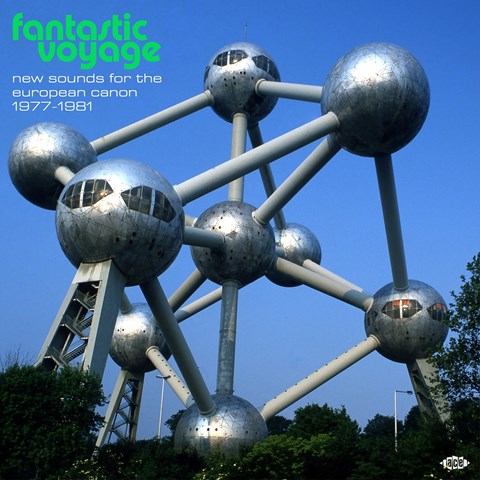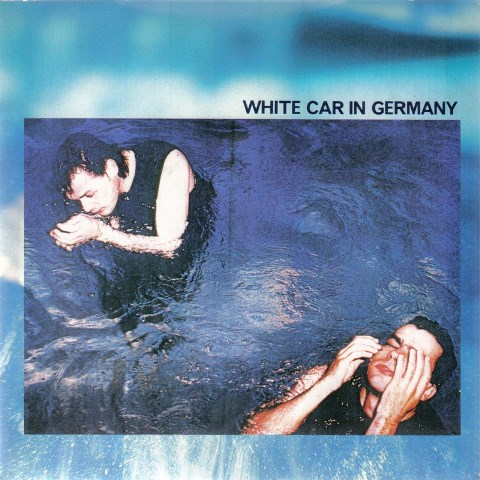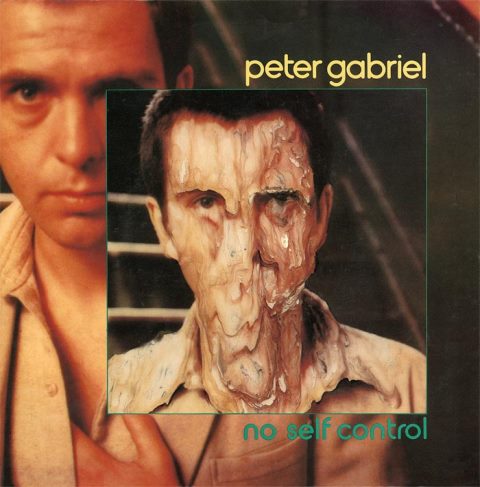In October 1977 Glasgow punk band Johnny & the Self Abusers decided to change their name. This was a problem for Chiswick Records, who were about to release their debut single. The records were pressed, the sleeves printed and the press release issued. There was no time to recall any of it and alter the band’s name. The single was credited to Johnny & the Self Abusers.
The new name the band went for was taken from the “so simple-minded” lyrics of David Bowie’s “The Jean Genie.” After reconfiguring their line-up, Simple Minds began regularly playing under the new Bowie-derived name from January 1978. The Chiswick single was a one-off punkish curio.
 Around 18 months on, in June 1979, the Dundee-area Associates issued their first single. It was a version of “Boys Keep Swinging” which Bowie issued as a single that April before the release of Lodger, its parent album. For The Associates, nodding Bowie-wards went further than covering one of his recent songs. Their singer, Billy McKenzie, had an approach to vocals building on that adopted by Bowie for his version of “Wild is the Wind,” covered on January 1976’s Station To Station album.
Around 18 months on, in June 1979, the Dundee-area Associates issued their first single. It was a version of “Boys Keep Swinging” which Bowie issued as a single that April before the release of Lodger, its parent album. For The Associates, nodding Bowie-wards went further than covering one of his recent songs. Their singer, Billy McKenzie, had an approach to vocals building on that adopted by Bowie for his version of “Wild is the Wind,” covered on January 1976’s Station To Station album.
After the summer of hate, Simple Minds and The Associates weren’t alone in carrying a torch for Bowie. His influence wasn’t eradicated by punk. From autumn 1978, a groundswell of Bowie-ness emerged in London’s clubland. In Soho, punk-era scenester Steve Strange and former Rich Kids drummer Rusty Egan began what were billed as weekly “Bowie Nights.” A more permanent home came in early 1979 after the duo co-opted the Blitz club, diagonally over from Holborn tube station. Bowie noticed: the promo video for his August 1980 single "Ashes to Ashes" featured Strange and some Blitz regulars.
Tracking the influence of Bowie on music and style as punk’s bloom faded is unproblematic. It is less easy however to detect what was impacting on his music in the same period. Unlike his disciples, he largely kept schtum. Around the time of January 1977’s Low, collaborator Brian Eno said Bowie liked his 1975 album Another Green World. On October 1977’s Heroes, “V-2 Schneider” borrows the name of Kraftwerk’s Florian Schneider. Parts of Lodger borrow motorik’s approach to rhythm. In January 1978, Bowie told ZigZag “the last things really that I bought were Steve Reich and Philip Glass things, which I've been listening to for quite some time, but, again when it comes to music my influences tend to come more from observation of the environment that I'm in…they tend to very much mirror where I was.” That was about as specific as it got.
 Fantastic Voyage - New Sounds For The European Canon 1977-1981 puts shape on this nebulousness. A 17-track collection taking its name from Lodger’s opening track, it is about music feeding into and rippling from the era of Lodger and September 1980’s follow-up album Scary Monsters, which included “Ashes to Ashes.” It is compiled by Saint Etienne’s Bob Stanley (who writes the booklet’s introductory essay) and the BFI’s Jason Wood (who writes the track-by-track commentary).
Fantastic Voyage - New Sounds For The European Canon 1977-1981 puts shape on this nebulousness. A 17-track collection taking its name from Lodger’s opening track, it is about music feeding into and rippling from the era of Lodger and September 1980’s follow-up album Scary Monsters, which included “Ashes to Ashes.” It is compiled by Saint Etienne’s Bob Stanley (who writes the booklet’s introductory essay) and the BFI’s Jason Wood (who writes the track-by-track commentary).
Stanley writes “by the turn of the 80s, the impact of David Bowie’s ground-breaking Berlin recordings – the synths, the alienation, the drily futuristic production – was being felt on music across Europe. What’s more, the records being made were reflecting back and influencing Bowie’s own work – 1979’s Lodger and 1980’s Scary Monsters owed a debt to strands of German kosmische (Holger Czukay), new electronica (Patrick Cowley, Harald Grosskopf), and the latest works from old friends and rivals like Robert Fripp, Peter Gabriel and Scott Walker, all of whom had been re-energised by the fizz of 1977.”
For Bowie, this period was not just about obliquely absorbing influences, impacting on others and imprinting a stamp on his Blitz-kid offspring. Lodger and Scary Monsters were markers. Business needed to be taken care of. In 1972, his management company MainMan had signed him to RCA. He split with them in 1975, yet the contract and the RCA deal which they had signed for him ran until September 1982. Under the terms of the 1975 severance agreement, despite not being managed by them he was still paying out to MainMan. Once his RCA obligations were fulfilled with Lodger and Scary Monsters and he was fully free from MainMan, Bowie could cleanly enter new territory. His final two RCA albums were creatively and professionally the end of a particular era. With these behind him, he was free of the ties binding him back to 1972. This is one of the reasons his first post-RCA album, Let's Dance, was so overtly commercial. It and its attendant singles were meant to sell.
 Fantastic Voyage, then, is not about the overtly commercial. The world explored is about those influenced by Bowie, those with similar artistic mind-sets and those who had collaborated with him. The opening track is Simple Minds’ glistening futurist dancefloor-filler “Theme For Great Cities.” The Associates are here with “White Car in Germany.”
Fantastic Voyage, then, is not about the overtly commercial. The world explored is about those influenced by Bowie, those with similar artistic mind-sets and those who had collaborated with him. The opening track is Simple Minds’ glistening futurist dancefloor-filler “Theme For Great Cities.” The Associates are here with “White Car in Germany.”
Folks with direct lines to Bowie are represented by Ryuichi Sakamoto’s “Riot In Lagos” and Robert Fripp’s Terre Roche-sung “Exposure.” Though a step further removed, Daryl Hall’s “The Farther Away I am” snugly fits the bill: it is taken from the extraordinary 1977-recorded Anglo-styled art-rock album Sacred Songs, produced by Fripp and shelved until 1980 by RCA, who decided it lacked commercial potential. An equally comfortable inclusion is The Walker Brothers’ “Nite Flights”: the Scott Walker tracks on their 1978 reunion album of the same name surely impacted on Bowie. Peter Gabriel’s “No Self Control” is another wholly logical selection.
When Fantastic Voyage takes left turns, it gets even more fascinating. It’s unlikely Areski Belkacem and Brigitte Fontaine gave two hoots about Bowie, but with its vague Turkish feel their “Patriarcat” has a tangible Lodger vibe. “3,000,000 Synths” by Blockheads keyboard player Chas Jankel is a grade-A wild card but, again, it makes sense here.
Then there are those who, like Simple Minds and The Associates, were on a Bowie tip: Cabaret Voltaire (“Silent Command”: situated in King Tubby-town as much holding a passport to Bowie-land), Harald Grosskopf (“So Weit, So Gut”) and Thomas Leer (“Tight as a Drum”) amongst them. And there are after-the fact discoveries which on their disinterment from archives have been found to have Lodger-esque sensibilities: Basil Kirchin’s “Silicon Chip” and Patrick Cowley’s “Nightcrawler.”
David Bowie himself is not here. But what’s collected on the absorbing Fantastic Voyage - New Sounds For The European Canon 1977-1981 sits in – or is within a complementary – headspace to his. He may as well be present. Which raises an unanswerable question. How would he have reacted to this dive into an ecosphere he created?
- Next week: The Tornados - Love And Fury The Holloway Road Sessions 1962-1966. 131 tracks direct from Joe Meek's Tea Chest tapes
- More reissue reviews on theartsdesk
- Kieron Tyler’s website















Add comment